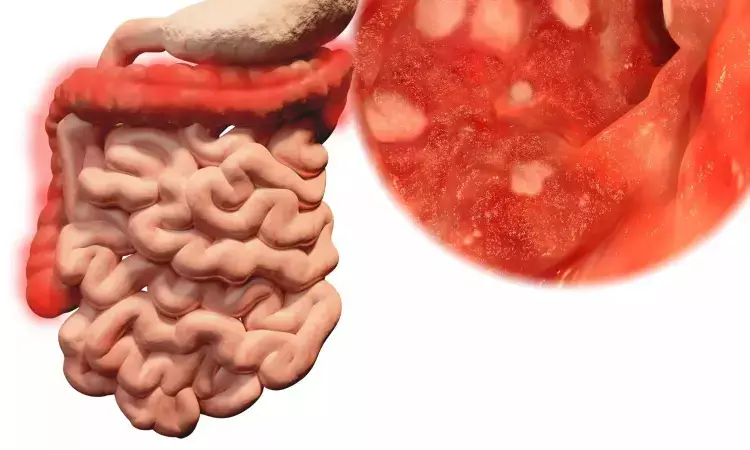- Home
- Medical news & Guidelines
- Anesthesiology
- Cardiology and CTVS
- Critical Care
- Dentistry
- Dermatology
- Diabetes and Endocrinology
- ENT
- Gastroenterology
- Medicine
- Nephrology
- Neurology
- Obstretics-Gynaecology
- Oncology
- Ophthalmology
- Orthopaedics
- Pediatrics-Neonatology
- Psychiatry
- Pulmonology
- Radiology
- Surgery
- Urology
- Laboratory Medicine
- Diet
- Nursing
- Paramedical
- Physiotherapy
- Health news
- Fact Check
- Bone Health Fact Check
- Brain Health Fact Check
- Cancer Related Fact Check
- Child Care Fact Check
- Dental and oral health fact check
- Diabetes and metabolic health fact check
- Diet and Nutrition Fact Check
- Eye and ENT Care Fact Check
- Fitness fact check
- Gut health fact check
- Heart health fact check
- Kidney health fact check
- Medical education fact check
- Men's health fact check
- Respiratory fact check
- Skin and hair care fact check
- Vaccine and Immunization fact check
- Women's health fact check
- AYUSH
- State News
- Andaman and Nicobar Islands
- Andhra Pradesh
- Arunachal Pradesh
- Assam
- Bihar
- Chandigarh
- Chattisgarh
- Dadra and Nagar Haveli
- Daman and Diu
- Delhi
- Goa
- Gujarat
- Haryana
- Himachal Pradesh
- Jammu & Kashmir
- Jharkhand
- Karnataka
- Kerala
- Ladakh
- Lakshadweep
- Madhya Pradesh
- Maharashtra
- Manipur
- Meghalaya
- Mizoram
- Nagaland
- Odisha
- Puducherry
- Punjab
- Rajasthan
- Sikkim
- Tamil Nadu
- Telangana
- Tripura
- Uttar Pradesh
- Uttrakhand
- West Bengal
- Medical Education
- Industry
A single incision needle knife biopsy promises diagnostic efficacy in GIT subepithelial tumors

United States: A review article published inGIE, Gastrointestinal Endoscopy, has mentioned that Single Incision with NeedleKnife biopsy is a diagnostic procedure which offers a high rate of technicaland diagnostic success in gastrointestinal Sub Epithelial Tumors (SET).This diagnostic procedure promise safety.
Histological diagnosis plays a vital role in determining the malignantpotential of gastrointestinal SETs.
Endoscopic ultrasound-guided fine needle aspiration and biopsy are thecurrent therapeutic modalities. (EUS-FNA/FNB). This diagnostic procedure offerssuboptimal success.
SINK biopsy is the emerging alternative approach to diagnosis toincrease tissue acquisition and success. Considering this, a systematic reviewand meta-analysis were done to evaluate the success, both technical anddiagnostic and adverse events of SINK biopsy. The lead researcher of the reviewwas Dr Yassin Shams Eldien Naga, and the team also determined whetherimmunohistochemistry is successful on tissue samples obtained.
The study summary is as follows:
- The database used were PubMed, EMBASE, CINAHL, Cochrane, Web of Science, and Google Scholar.
- Technical and diagnostic success was the primary outcome measured in the study.
- Adverse events were the secondary outcomes.
- Seven studies were included, including a total of 219 SINK biopsy procedures.
- The rate of technical success was 98.1%.
- The rate of diagnostic success was 87.9%.
- The rate of immunohistochemical success was 88.3%.
- The rate of adverse events was 7.5%.
- The most common adverse event was bleeding.
To conclude, SINK biopsy is safe with a reasonable success rate inpatients with gastrointestinal SET.
Researchers warranted further investigations, RCTs and direct comparisonstudies to validate these findings.
Further reading:
Naga, Yassin Shams Eldien, et al. "Single Incision Needle Knife Biopsyfor the Diagnosis of Gastrointestinal Subepithelial Tumors: A Systematic Reviewand Meta-Analysis." Gastrointestinal Endoscopy, Elsevier BV, Nov.2022. Crossref, https://doi.org/10.1016/j.gie.2022.11.021.
BDS, MDS in Periodontics and Implantology
Dr. Aditi Yadav is a BDS, MDS in Periodontics and Implantology. She has a clinical experience of 5 years as a laser dental surgeon. She also has a Diploma in clinical research and pharmacovigilance and is a Certified data scientist. She is currently working as a content developer in e-health services. Dr. Yadav has a keen interest in Medical Journalism and is actively involved in Medical Research writing.
Dr Kamal Kant Kohli-MBBS, DTCD- a chest specialist with more than 30 years of practice and a flair for writing clinical articles, Dr Kamal Kant Kohli joined Medical Dialogues as a Chief Editor of Medical News. Besides writing articles, as an editor, he proofreads and verifies all the medical content published on Medical Dialogues including those coming from journals, studies,medical conferences,guidelines etc. Email: drkohli@medicaldialogues.in. Contact no. 011-43720751


